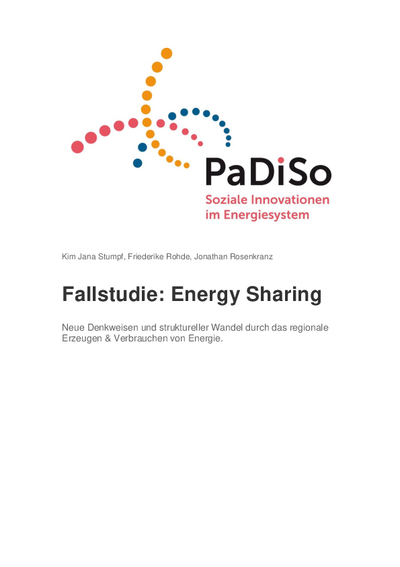Case Study: Energy Sharing New ways of thinking and structural change through regional production and consumption of energy
This report is one of four case studies conducted in the project “PaDiSo – Participation in the digitalized energy system through social innovations”. It deals with the concept of ”energy sharing” and reconstructs the developments it has experienced since 2020 and the question of which forms of institutionalization work actors pursue in order to socially legitimize social innovations such as energy sharing. Document analyses and guided interviews were conducted for this purpose.
Energy sharing is a novel model of decentralized energy supply in which certain actors in a spatial context exchange and distribute jointly generated electricity locally. It therefore proves to be an interesting case not only because it breaks with existing structural ways of thinking and creates new forms of social action. Against the backdrop of the transformation of the energy system and other associated social problems, energy sharing as a social innovation in the energy system also represents a promising answer to controversial questions relating to the municipal energy transition. This is because the decentralization of the energy system also brings new opportunities for democratization and participation.
However, it is clear that no appropriate institutional framework has yet been created for widespread implementation, which is why energy sharing cannot yet exploit its full potential. The case study therefore takes a broader look at the constellation of actors in the field of energy sharing in order to draw attention to institutional obstacles. On the other hand, it focuses on the analytical perspective of socio-material relations, which play a particularly important role in infrastructure development. This is important insofar as energy sharing offers many opportunities in the course of the advancing digitalization of the energy system, but is also dependent on it.



